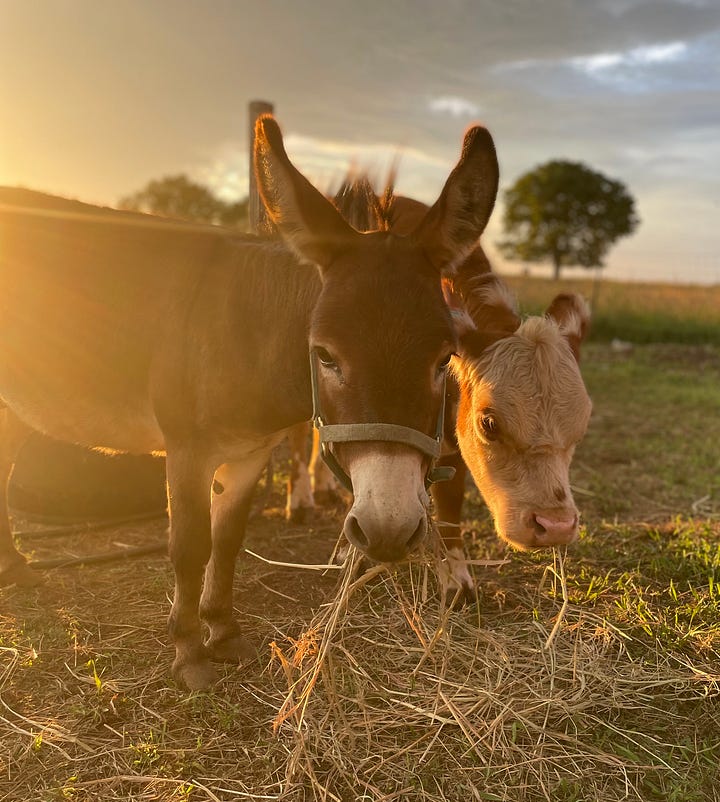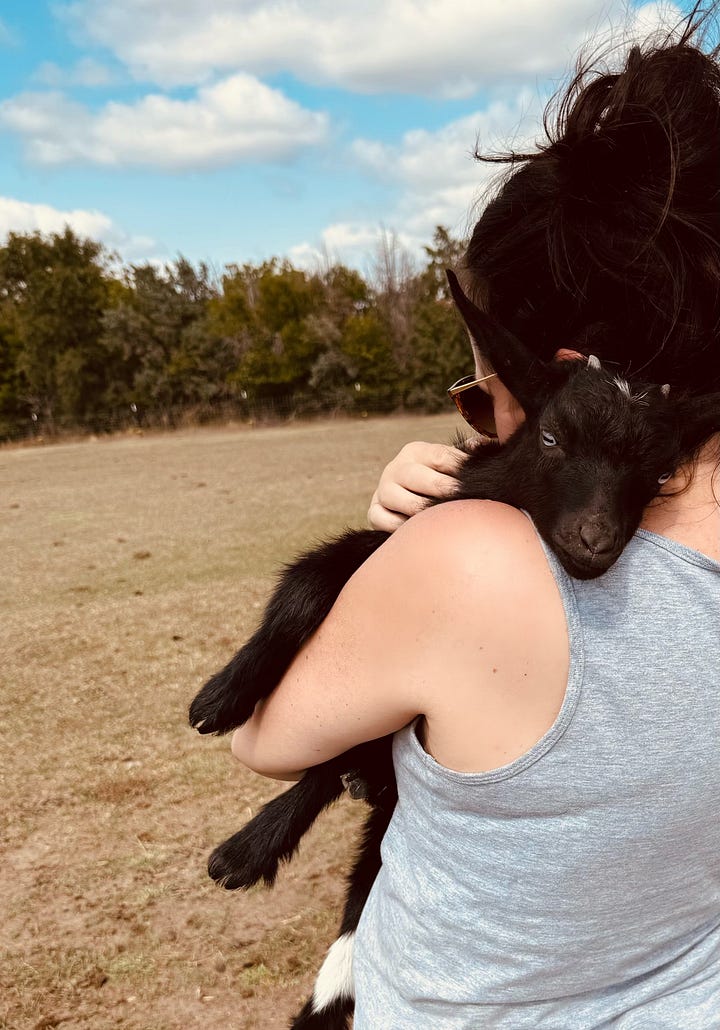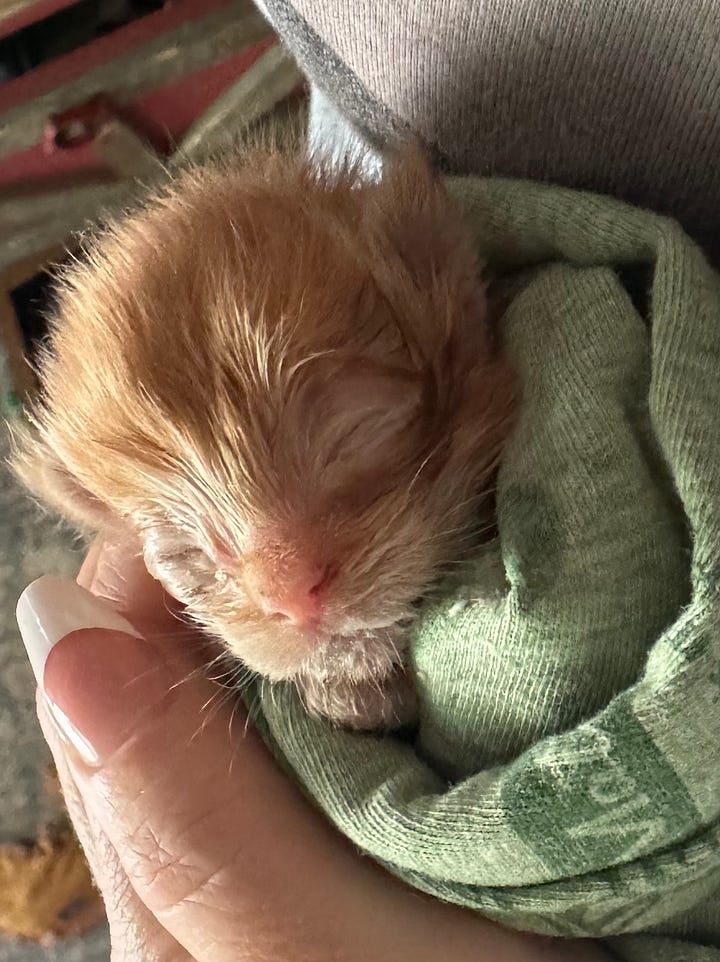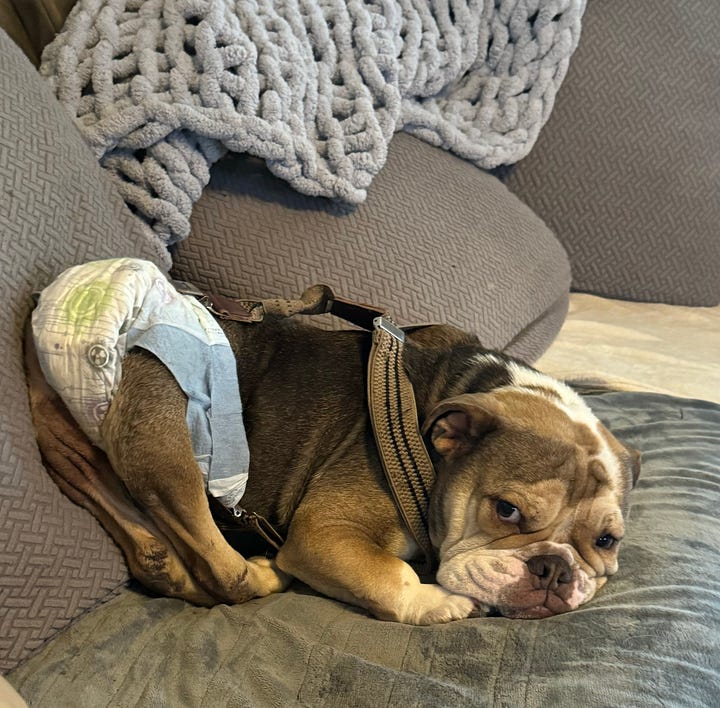Coming home after speaking out
Stephanie Grisham gave a speech at the DNC, then went back to her small town in Kansas. Her experience says a lot about our politics.
Stephanie Grisham and I were introduced by Alyssa Farah Griffin. Both women worked for President Trump. I worked for President Obama.
We were now meeting after both men were out of office.
Did we all have regrets? Yes.
Did we all look back and sometimes wonder — for our families and for ourselves — was it always worth it? Undoubtedly.
Even so, last week, Grisham, a longstanding Republican, did something pretty unusual: She shared her regrets from the stage at the Democratic National Convention.
***
When you work in the White House and you see the gravity of the decisions made, it’s easy to have some regrets. The decisions a President makes are never easy. And it’s hard to feel like you’ve always done everything right.
On stage Grisham shared her disappointment that on January 6 she couldn’t get her boss to weigh in on behalf of peace.
In the aftermath of Grisham’s speech, liberal voices — who a few short years ago said awful things about Grisham — lionized her. Meanwhile MAGA influencers — who a few short years ago defended everything she did or said — demonized her.
What does it say about our country when we’re so quick to embrace voices with which we agree, and so happy to discard those we don’t?
***
By the time Grisham and I met in 2022, she was done with politics and had moved out to rural Kansas, the state where I was born. She was living a drive from Hays, which is about as far away as she could get from DC politics.
As a little girl, Grisham would bring back the injured birds and always took solace in small creatures' spirits.
After leaving Trump’s orbit, having publicly resigned, she had moved to a small town, nearer to family, to start fresh. She started an animal sanctuary, caring for wounded and discarded animals.
When we met, it was to jointly address a University during a divided time. Despite our political divisions we’ve stayed in touch since.
We talked on Monday, about a week after she addressed the DNC.
It had been a whirlwind, she said. Media organizations — some of which had refused to have her on when she first wrote her book — were now, suddenly, happy to have her on, after she spoke at the DNC.
Stephanie Grisham is still conservative. She lives in a small town. She likes the pace of life and her community.
But now that she’s spoken at the DNC, she’s too liberal for many of her neighbors.
She wants to tell her neighbors who support Trump she understands, she said. She supported him too, she says.
The online MAGA world was quick to pounce. It wasn’t even just about what she said. It was comments about her looks, her family, her friends. It was too much, all the hate.
After she got home, Grisham went to her field in Kansas, made herself a cocktail, and sat out with her animals to find peace.
How did we get here? “I don’t know,” Grisham says.




Here’s more of my conversation with Grisham in a lightly edited Q and A:
Maska: Why was it important to you to address the DNC?
Grisham: To be blunt, I knew it would get noticed. I felt it would be an important opportunity to share not just opinions, but facts about Donald Trump that I learned after spending almost 6 years with him. I want to be that Republican voice who says, “Hey, I get it, I really believed in him too; but it’s all an act, and a second term will not be what you think it will be and here’s why.”
Maska: What was it like when you got home?
Grisham: It was hard to see my neighbors, who know me very well, be so upset at me for speaking at the convention. I have been speaking out against Trump very publicly for almost four years now. But I guess endorsing a Democrat was a stretch too far. It didn’t matter that we exchanged Christmas gifts, that I watched their homes or kids, that they know all about my family and sanctuary and me as a person — I am now ostracized.
Maska: What does it say about our political discourse that we’re so quick to stand up those we believe we agree with, and discard the views of those we don’t?
Grisham: It is certainly taking away opportunities for meaningful discussions and the chance to try and understand another person’s perspective, even if we can’t agree. I can’t imagine bullying or ostracizing someone simply because I don’t agree with them.
***
In his DNC address, President Obama offered his own take: “We build all manner of walls and fences around ourselves and then wonder why we feel so alone.” But then, he said, the good news is “All across America, in big cities and small towns, away from all the noise, the ties that bind us together are still there. We still coach Little League and look out for our elderly neighbors.”
Are those binds still there?
Grisham has seen her community come together in a crisis and support one another.
But we both have seen lingering — and festering — divisions at play. During COVID things got ugly — judgment and isolation. Even Little League teams seemed to self-select. And for many it hasn’t gone back. As we gear into the election, some fractures seem worse.
Partisanship has gotten so ugly where our neighbors, who know us, our family, who love us, can judge us only because of a team jersey when it comes to politics.
And to be clear: Hate has no one political team, and has been directed at both. Grisham and I recall Sarah Sanders being thrown out of a restaurant for working for President Trump.
***
In many ways Grisham and I have a lot in common. She was one of President Trump’s first hires on the 2016 Presidential Campaign. I was one of the first hires on President Obama’s 2008 Presidential Campaign.
She was one of Trump’s closest aides, given the title of Press Secretary & Communications Director because he trusted her, a trust she built over 6 years. I was one of the Obama true believers — who stayed 8 years, trusted to travel the world and represent him.
We both come from families who never would have dreamed they’d have a daughter in the White House. And we both have family who at times disagree with us on politics.
We both are moms. Grisham is a single mom who had her first very young. I had my first son when I was working at the White House.
We both want the best future for our kids.
And yet that question: How did we get here? To this division? One part of America blames her former boss. Another part of America blames mine.
***
I was speaking in Florida a while back, and I was asked by a woman if President Obama would be involved in this election. “Because he’s done everything he can to divide this country,” she said.
The President Obama I knew never wanted a divided America.
He believed we all had more in common than we knew.
But did we do enough to truly engage Republicans? It’s one of my regrets.
I ask Grisham:
Maska: When you were in the White House, what did the “resistance” feel like to you?
Grisham: It felt like anyone who didn’t get on board with Trump was in the resistance. We had such a bunker mentality and I began to believe everyone was the enemy: the media, democrats, career government employees, anyone who dared say a bad word about Donald Trump.
Maska: What is it you want to see in our politics moving forward?
Grisham: I want us to have conversations about policy. I want people to try and at least listen to one another - even if we don’t agree. Wouldn't it be great to debate policy, work together on a compromise to implement it on behalf of the American people, then go out and have a drink or dinner together to celebrate? As corny as it sounds, I really want people to remember that politics is just a fraction of who we are as humans, and like you and I — we have so many things in common that can allow us to be friends, or at the very least, be civil to one another.


